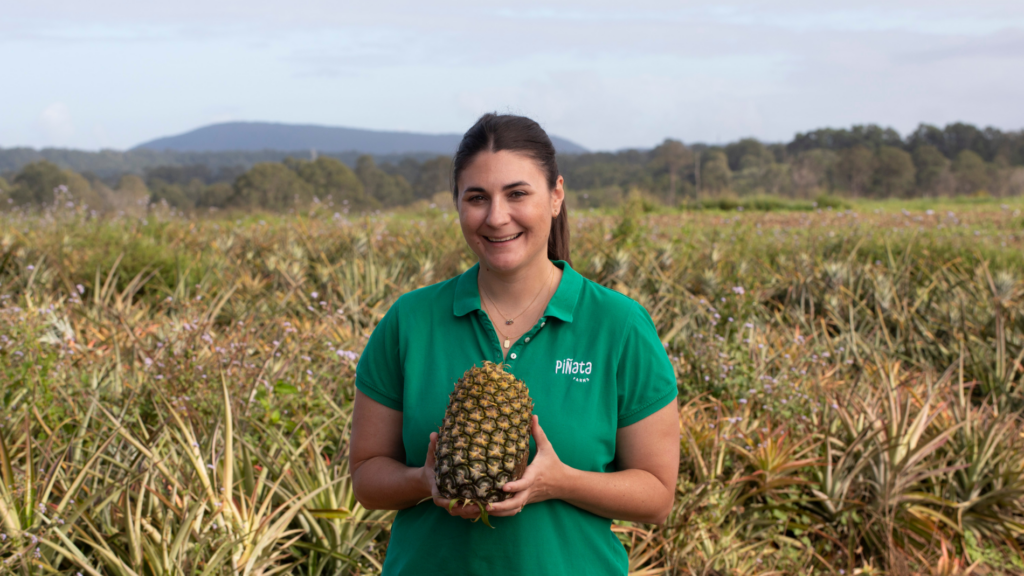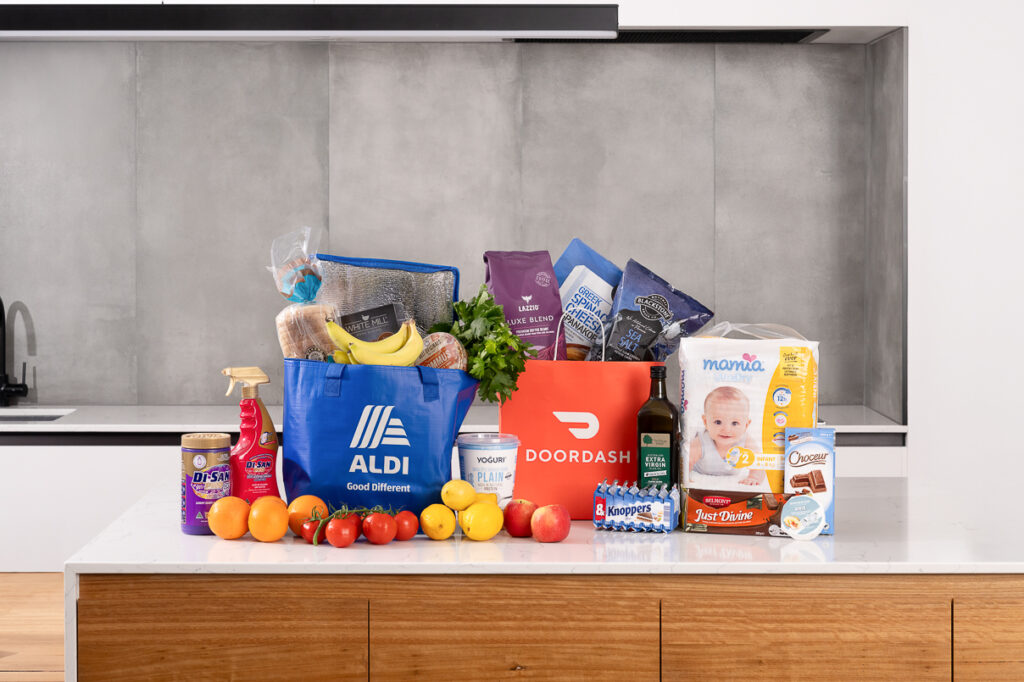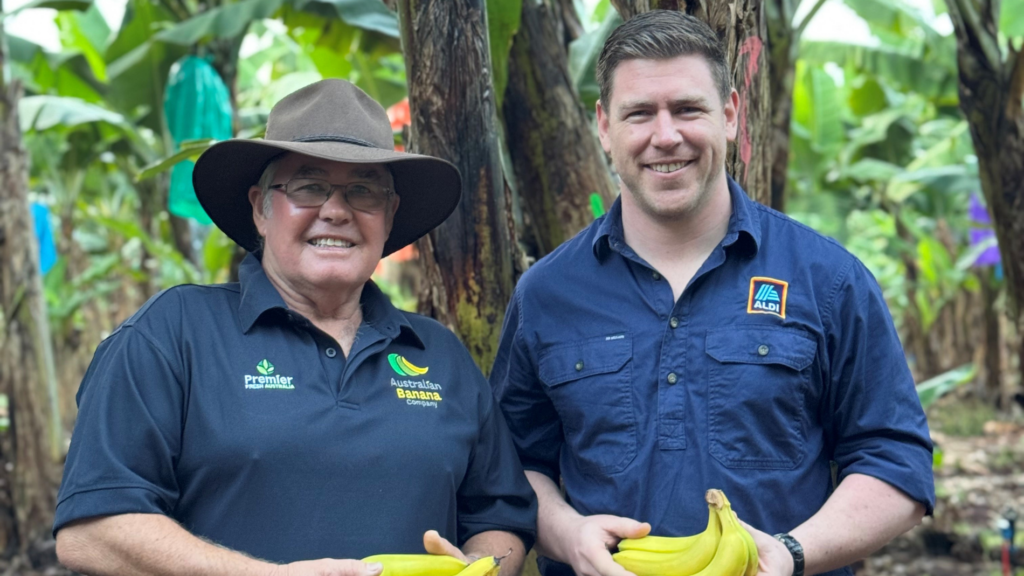
Aussies love fresh pineapple – in fruit salad, grilled on the BBQ or just as a snack. But have you ever wondered where it comes from?
Meet Piñata Farms, our Produce Partner based on Queensland’s Sunshine Coast. The region’s sub-tropical climate and rich volcanic soil means it’s the perfect place to grow fresh pineapples.
And it’s not just pineapples that keep this family busy! Piñata Farms also produces strawberries, raspberries, and mangoes, supplying ALDI stores with Aussie-grown fruit all year around.
60 years of innovation
“I’m a fourth-generation farmer,” says Rebecca Scurr, Piñata Farms’ Sales and Marketing Manager. “My grandparents and great-grandparents started growing pineapples at Wamuran in the 1960s.”
In the 1990s, Rebecca’s father and uncle kick-started the fresh pineapple industry, bringing a new hybrid variety from Hawaii to Australia. Prior to this, Australians could only buy tinned pineapple made with a sour variety.
But they didn’t stop there.
In the 2000s, the family business expanded into strawberries, growing them year-round by farming in both Wamuran and Stanthorpe.
In 2002, they purchased the rights to Honey Gold mangoes, a new premium variety known for its intense and distinct flavour.
In 2017, they entered a partnership with BerryWorld Australia to grow world-class raspberries, now harvested from farms in Wamuran, Stanthorpe and Tasmania.
And recently, Rebecca began sharing behind-the-scenes videos of farm life on TikTok (@pinata.farms.australia), including Honey Gold mango harvesting at night in Katherine, NT and the packing process for ALDI’s premium strawberry selection at Wamuran in Queensland.
It’s this diversification and forward-thinking approach that earned Piñata Farms a place in the Queensland Business Leaders Hall of Fame last year, recognised for their leadership and innovation in Australian food production.
A Good Different partnership
Piñata Farms started working with ALDI in 2012, beginning with their Honey Gold mangoes available throughout summer. Since then, the partnership has expanded to cover more fruit.
“Each year, we supply approximately 80,000 trays of Honey Gold mangoes, 50,000 trays of pineapples, 50,000 trays of raspberries, and 100,000 trays of strawberries to ALDI,” says Scurr.
“We set ourselves a goal five years ago: to give a fruit experience that’s either a pineapple, strawberry or raspberry punnet to half of all Australians, and we hit that goal last year. Our relationship with ALDI has absolutely underpinned that success.
“What ALDI’s been able to give us right from the start is clear goals, guidelines, and commitments to give us confidence in growing our fruit and our business.”
Innovation is powering their berry operations too. Piñata Farms have invested heavily in agricultural technology over the last ten years, implementing new berry tunnels, berry cropping models, and berry refrigeration to help a finicky product maintain the best possible shelf life.
“Pineapples are our most predictable crop. We plant one and pick one two years later. Not much has changed in how pineapples are grown over the past century. But berries? It changes every year, and that’s where a lot of our investment in technology has gone.”
Pineapples: the gift that keeps on giving
The journey from soil to shelf is simple. Harvest days start first thing in the morning. A team of pickers use a harvester to cut the pineapples, remove their spiky tops and load them into field bins.
If you’ve ever picked up a pineapple at ALDI and noticed it was missing its spiky top, there’s a good reason. The tops are removed during harvest and replanted to grow the next crop, making pineapples the gift that keeps on giving.
Growing pineapples from tops takes time. It requires at least two years to flower and another six months for the fruit to mature, but it’s a more sustainable practice.
After they’re picked, the fruit is transported to a nearby packing shed. They are gently tipped into water to prevent bruising, are weight graded, packed into trays, tagged and stacked onto a pallet and stored in a cold room at 13°C to keep their quality. Finally, they are collected and delivered to ALDI warehouses seven days a week, ensuring our stores are regularly stocked with fresh pineapples.
Top tips for pineapple lovers
Rebecca Scurr shares her advice on what to look for when choosing a pineapple.
“Unlike other fruits, pineapples don’t ripen any further after they’ve been picked.
“One of the most common questions I get asked is how to pick a great eating pineapple. I’d be looking for one with a nice glossy exterior and a little bit of yellow in the eyes. If it’s starting to turn, it will look tired and shrivelled.
“You don’t need to store pineapples in the fridge. In fact, it’s best kept in your fruit bowl. And once you cut it up? It will not last long, it’s too tasty not to eat right away!”
Looking ahead, Rebecca is feeling confident about the produce, the partnership with ALDI, and what it means for ALDI customers.
“I’m so excited about the future of our four products, but more importantly our future with ALDI. There are going to be more and more customers putting Piñata pineapples and Piñata strawberries into their ALDI basket, and having a great experience at home.




